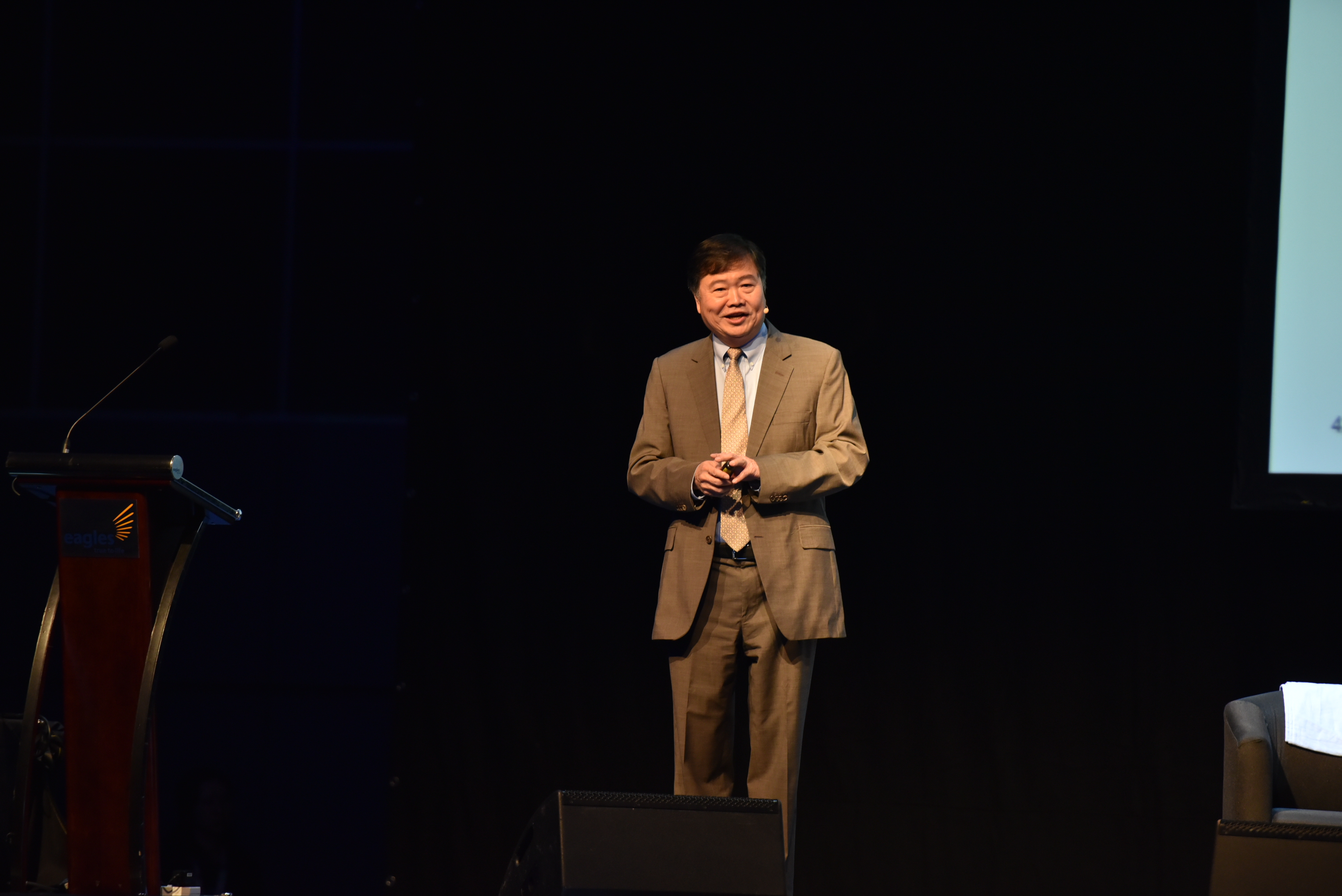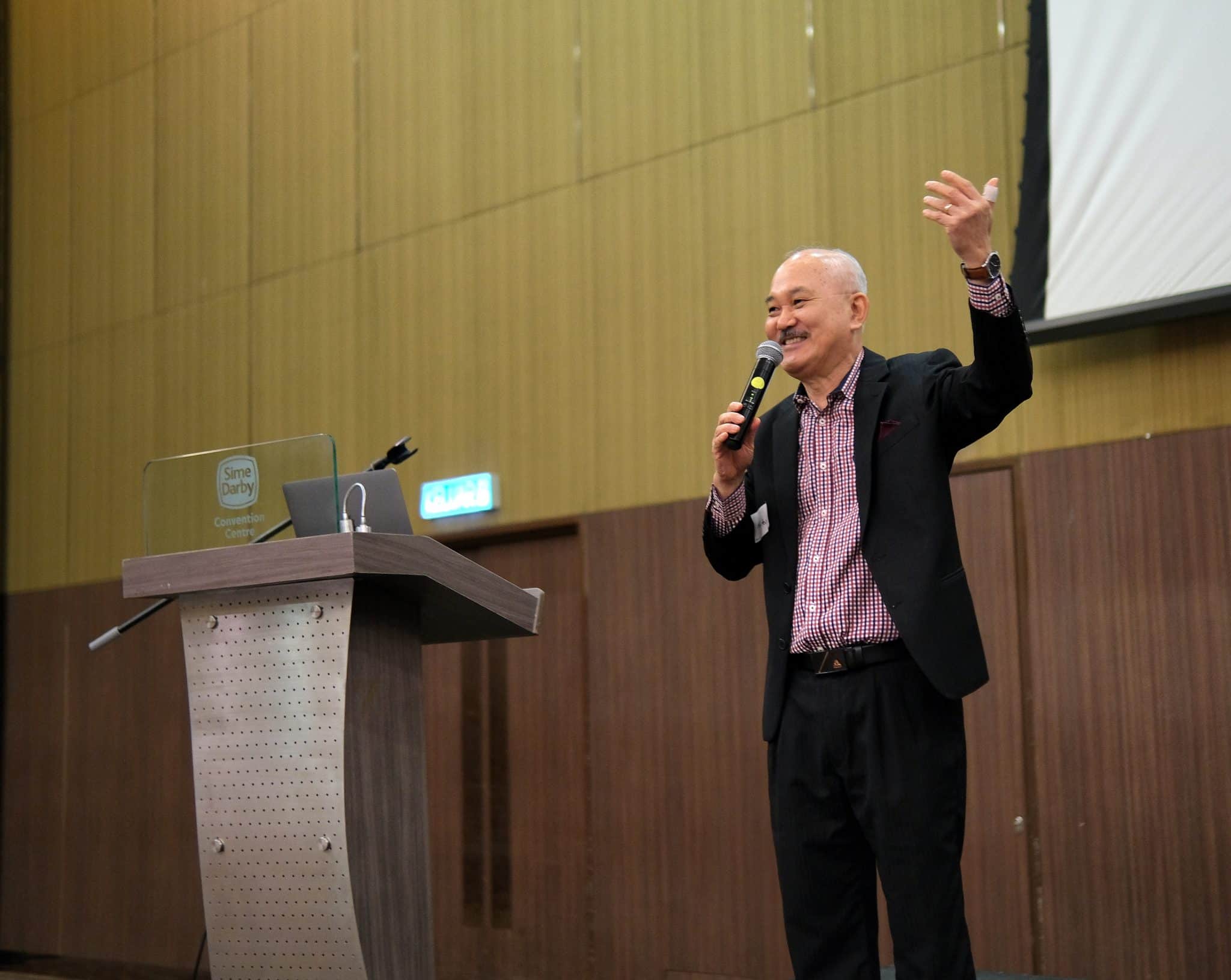“To create commitment, you’ve got to create purpose”: Linkage Asia’s CEO Samuel Lam
Salt&Light // August 21, 2019, 4:13 pm

Samuel Lam, president and chief executive of Linkage Asia, speaking at this year's Eagles Leadership Conference. Photo courtesy of Eagles Communications.
During the Eagles Leadership Conference 2019, Salt&Light interviewed president and chief executive of leadership development consultancy Linkage Asia Samuel Lam about job commitment and purpose:
Do you think job-hopping is a problem among younger workers and how would this affect their career and personal advancement?
Lam: I think yes, definitely there is an impact. One of the biggest advantages of job-hopping is exploration. You are able to learn more, see more, scope more, earlier. The disadvantage is, if you keep doing it, you would never be able to build depth. So because there are a lot of people now who move too much, they actually skim the surface and are never able to create depth. The Christian example is a really good one, you know, on the seed that fell on rocky ground. In other words, there is no rootedness in what they do.
Q: Why do you think people find it so difficult to commit nowadays?
Lam: Reason number one is because there are just too many choices available. Number two is wealth. More people can afford not to stick to their job. In other words, there is sufficient social fabric, or social wealth, or social netting that you can get away with it. In the earlier days, myself, my parents, when they have a job, they hang on to it, because it is important, and it is very, very hard to get. Today, there are way more opportunities.
If they see a reason to commit, they commit.
Q: How do we encourage young people to commit?
Lam: I think the main part to committing is you got to be able to create purpose. People commit based on purpose. If they see a reason to commit, they commit. Whether it’s on a personal basis because you love me, I love you, that’s a good enough reason. But in terms of a job, they need to see meaning in doing this kind of stuff. Somewhere, leaders need to draw the link between work and meaning. Because it’s not a straight line. Worst of all, it’s not an obvious line. And sometimes they don’t see the connection between meaning and work, because work is very routine. It’s like reps in a gym. But if you see those reps would be able to build muscles and then health and well-being, then you’ll do it. But if the reps don’t do anything for you, why do the reps.
Q: What would you say to someone whose boss cannot inspire, they find that the work is very mundane and they have lost their purpose. How can they keep on committing?
Lam: Figure out, number one, if you can learn something here. If you cannot learn something here, can you make a living first, and then figure out your next step?
Q: Are there biblical principles you think we can apply so that we can learn to either be courageous or to commit?
Lam: Our following the Lord is the biggest commitment. When we follow the Lord, there are two sides to our spiritual commitment. One is: It’s not without a price; there’s a price to pay. But on the other hand, there is a big reward both in this life and the life to come. So when you look at commitment, figure out what is the price and the reward that is the Christian’s version of a price-earnings ratio.
We are an independent, non-profit organisation that relies on the generosity of our readers, such as yourself, to continue serving the kingdom. Every dollar donated goes directly back into our editorial coverage.
Would you consider partnering with us in our kingdom work by supporting us financially, either as a one-off donation, or a recurring pledge?
Support Salt&Light




